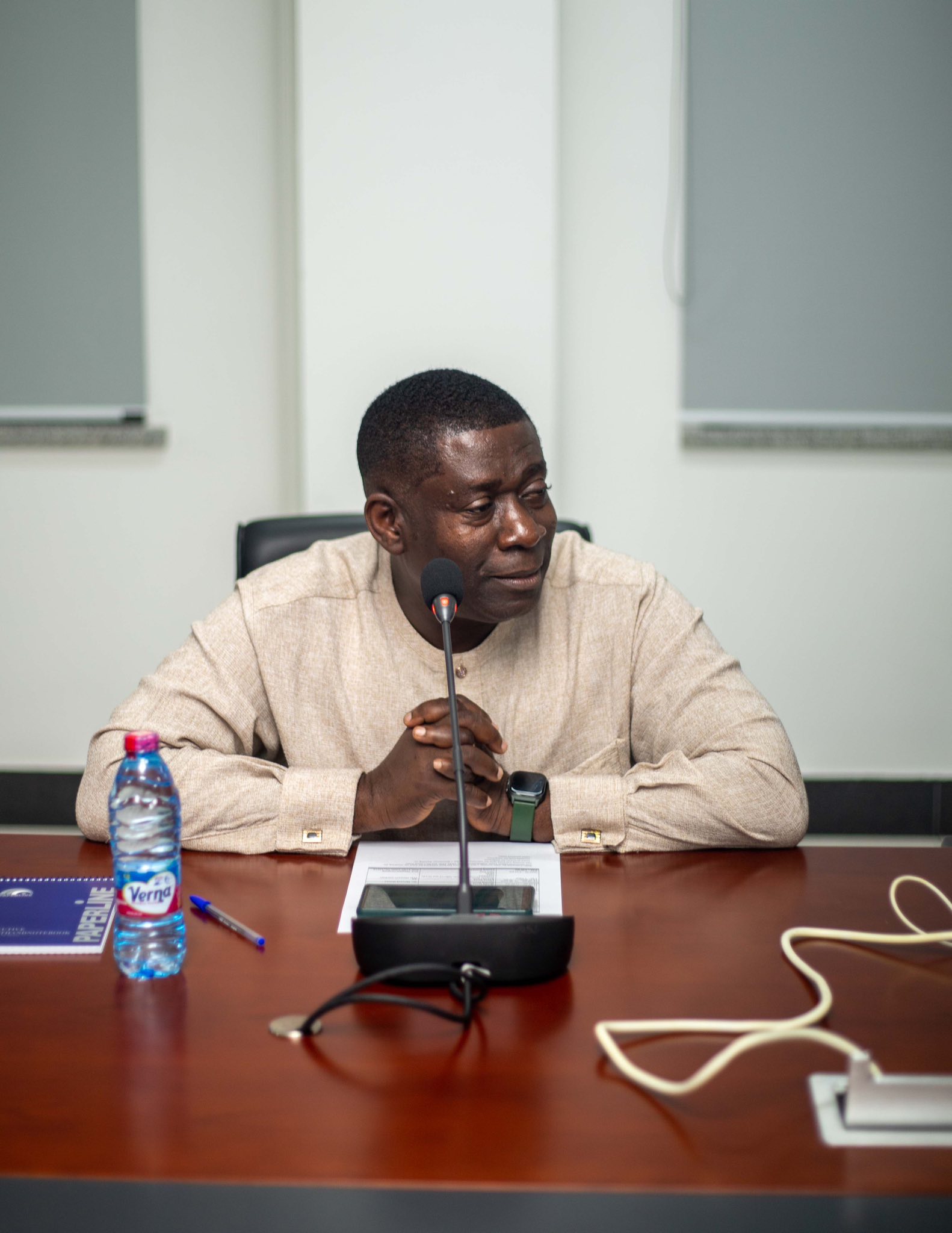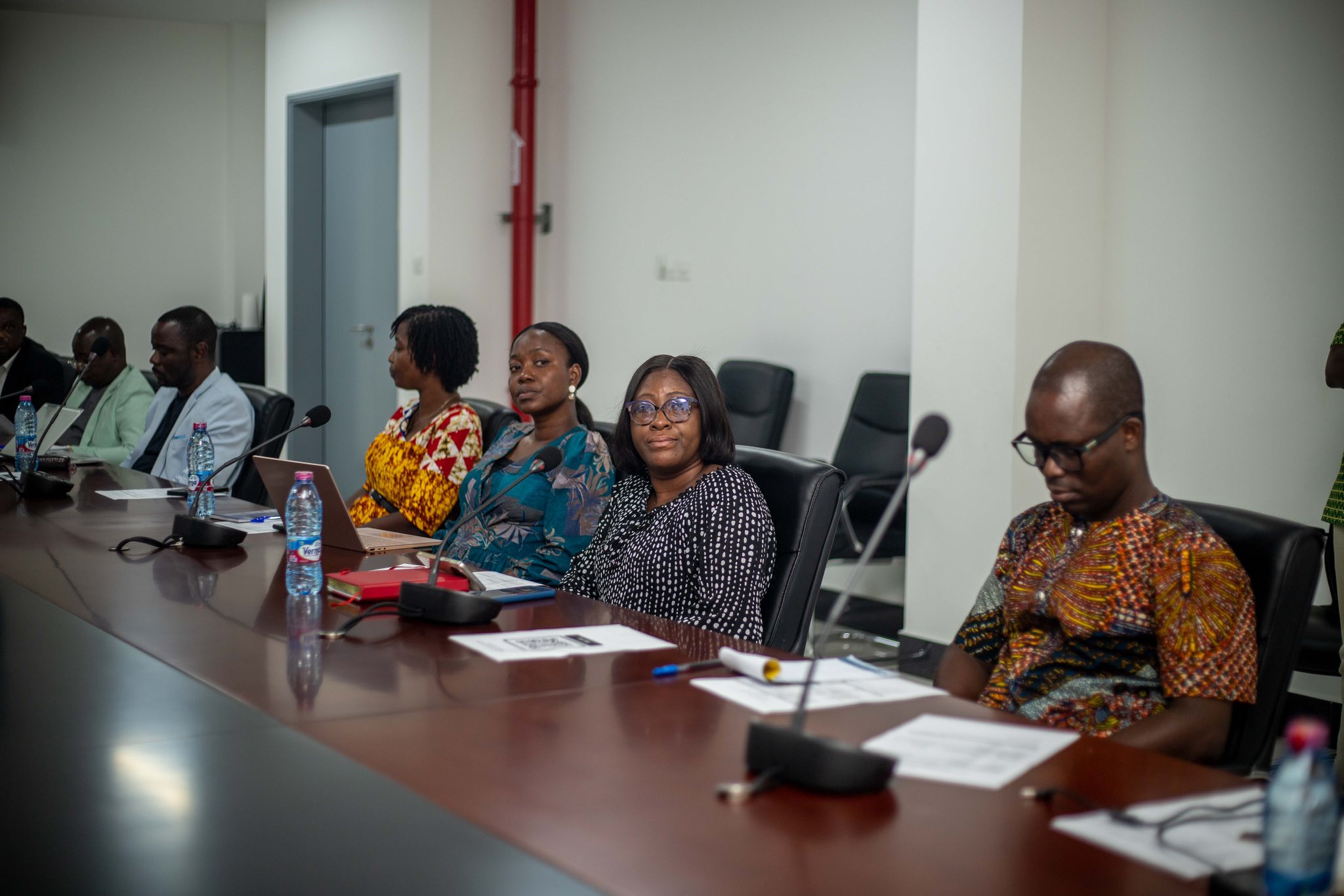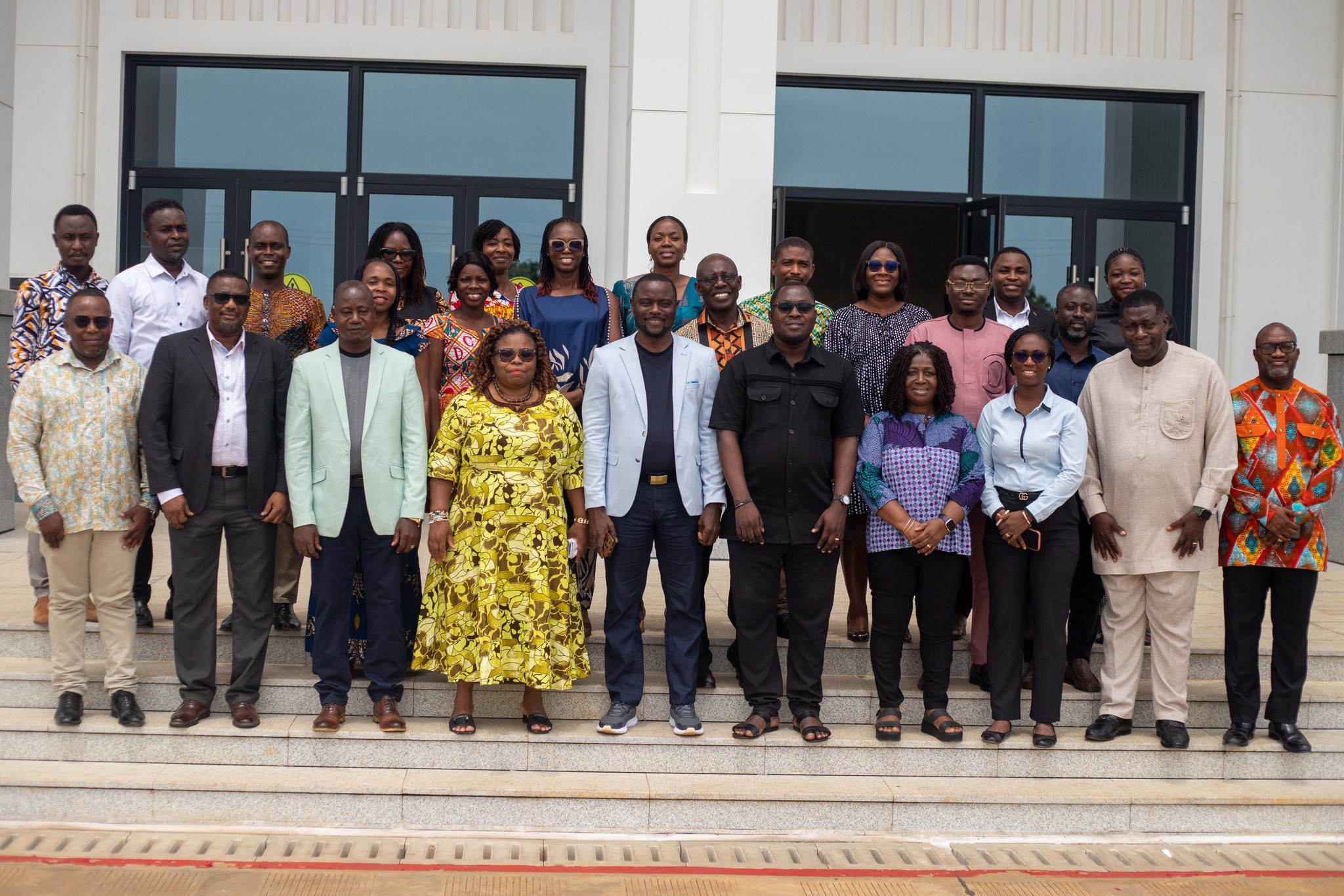
UHAS-IHR HOSTS IMAGINE GHANA PROJECT STAKEHOLDER MEETING
The Center for Neglected Tropical Diseases Research (CNTDR) of the University of Health and Allied Sciences (UHAS) Institute of Health Research (IHR) held an inaugural stakeholder engagement on the Imagine Ghana Project on March 31, 2025 at the Main Campus of the University. The Imagine Ghana project is an adaption of the World Health Organization (WHO) Essential Care Package (ECP) for Neglected Tropical Diseases (NTDs), stigma and mental health conditions.
|
|
|---|
Professor Margaret Gyapong, the immediate past Director of UHAS-IHR in her welcome address as the Chairperson for the event, appreciated the collaboration between UHAS, Ghana Health Service, Ministry of Health and the various partners across the globe. She noted that working in a consortium makes research and execution of projects much easier. Professor M. Gyapong stated that research in UHAS is expected to impact programmes and policies.
 | 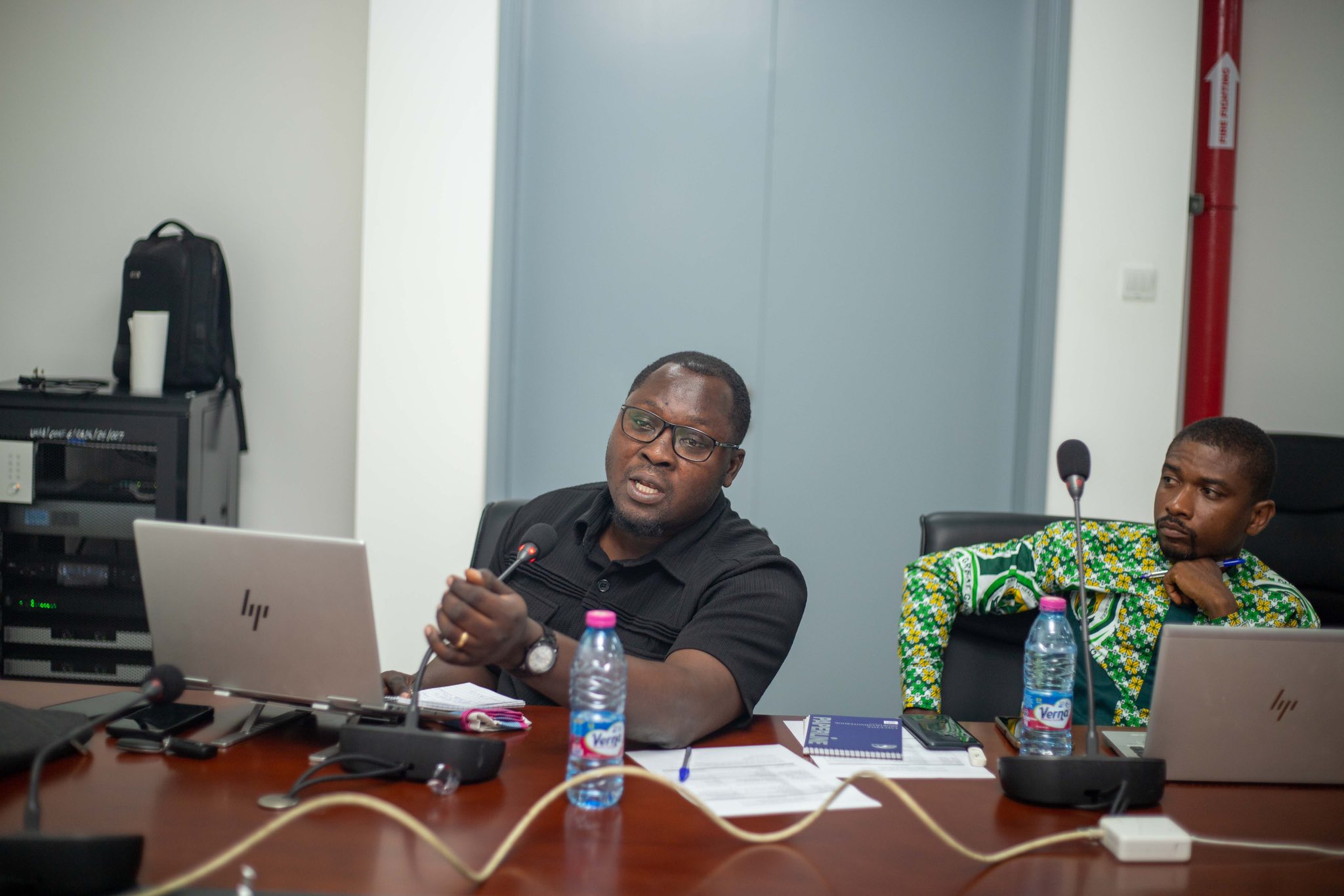 |
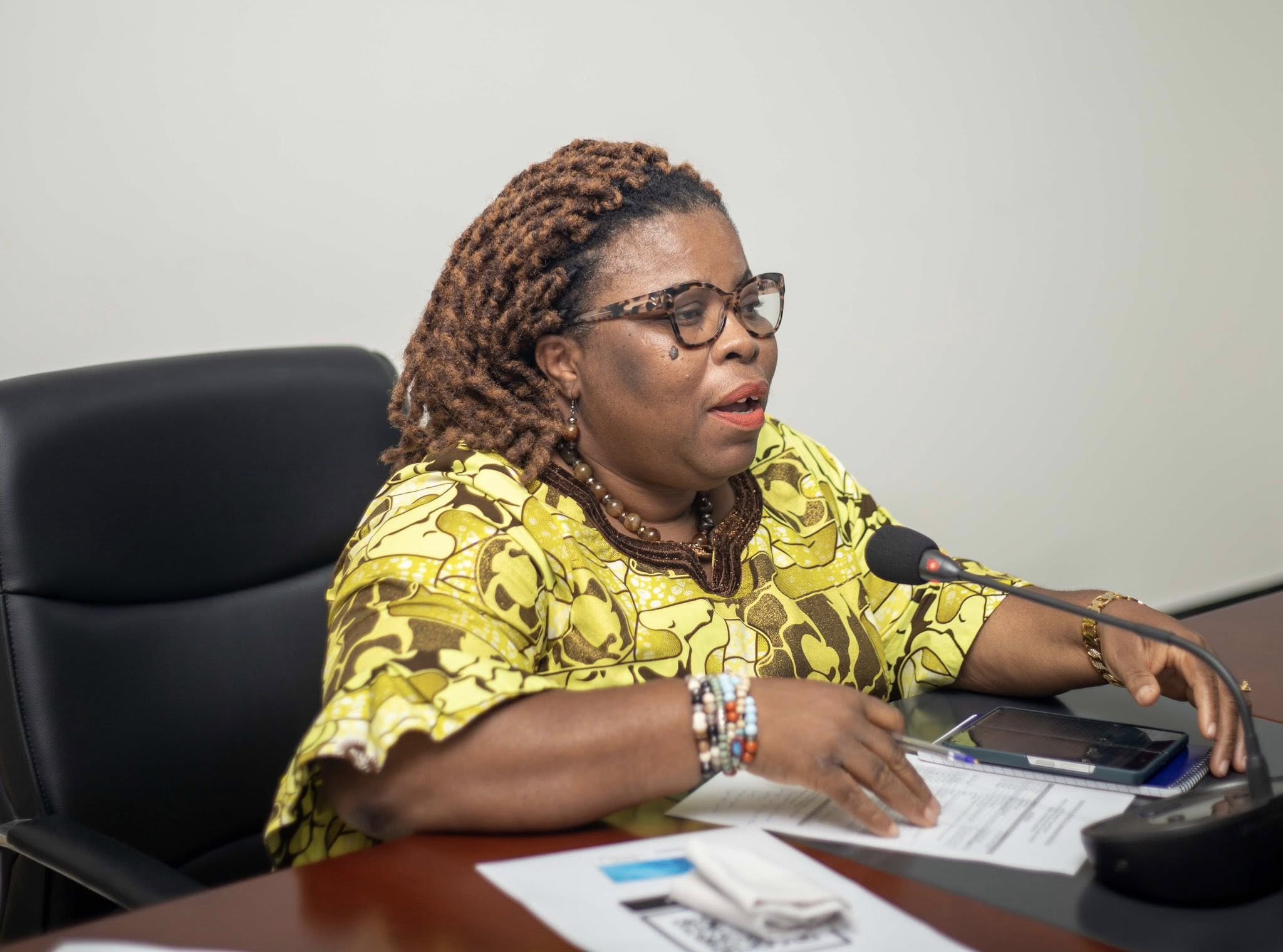 | 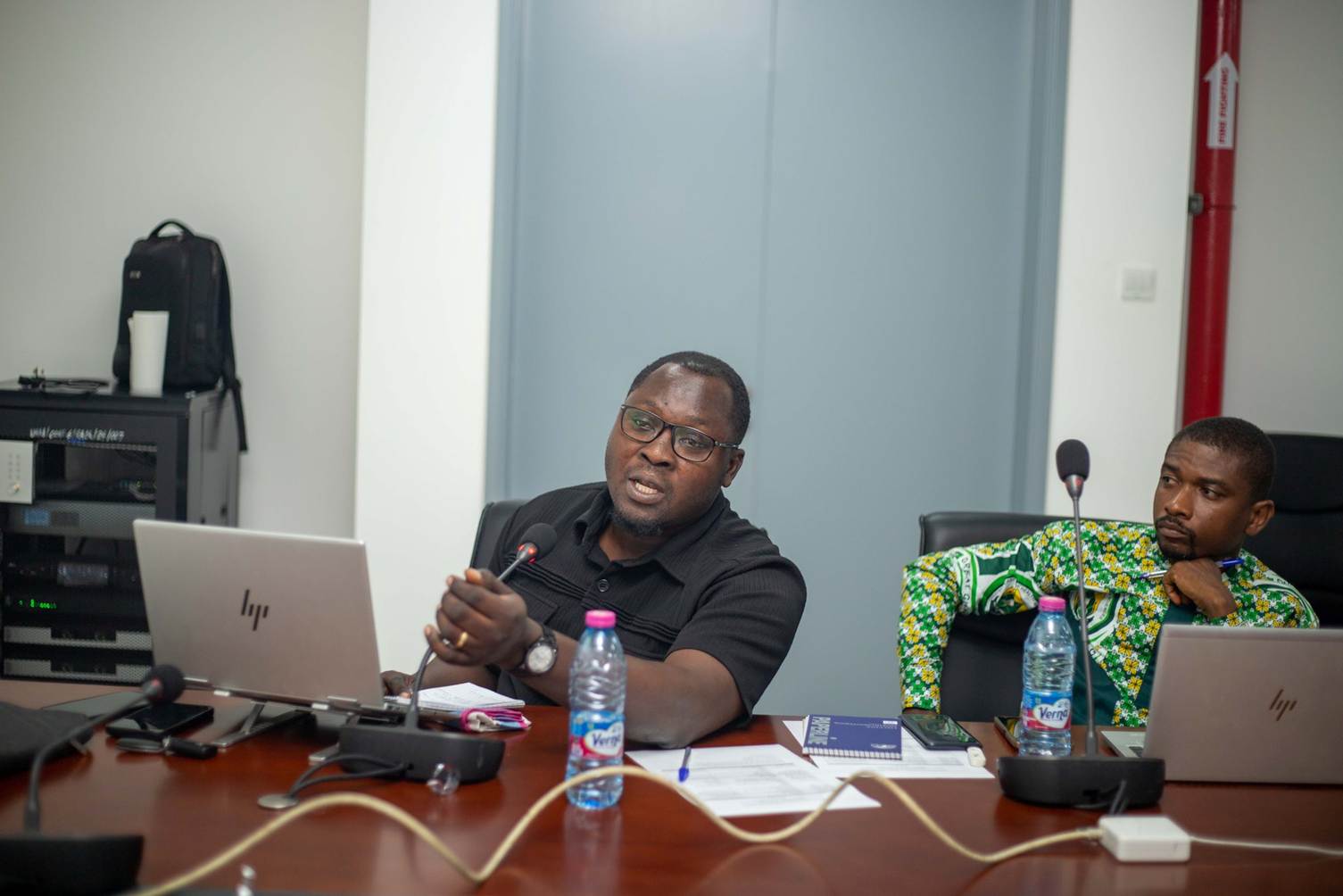 |
The Vice Chancellor, Professor Lydia Aziato, welcomed the participants to the University. She expressed her excitement about the tremendous efforts being made by UHAS-IHR in forging collaborations with other research institutions like Ghana Health Service, Liverpool School of Tropical Medicine and other partners both in Ghana and beyond. Professor Aziato indicated that UHAS has a good number of early career researchers and called on UHAS-IHR to endeavour to bring on board the young faculty in the various schools within the University.
Dr. Maxwell Dalaba, the Director of UHAS-IHR Center for Non - Communicable Diseases, representing the Acting Director of UHAS-IHR, Professor Kwame Ohene Buabeng, stated that the Institute was working towards introducing the Center for Population and Family Health as an additional Centre in IHR. He expressed the Institute’s readiness to collaborate with other players in the research space across the globe.
Dr. Alfred Kwesi Manyeh, the Director of UHAS-IHR Center for Non – Communicable Diseases Research, made a presentation entitled ‘Integrating Mental Health and Neglected Tropical Disease Interventions to Support Equitable People-Centered Care in Ghana’ on behalf of the Ghana team at the forum. He was excited that the Imagine Ghana project was finally a reality. He stated that NTDs are a group of diseases that are prevalent among the poorest people in the poorest countries. He said people affected by STDs often experience pain, changes in their physical appearance, stigma and discrimination and as a result, they are more likely to experience mental distress, including depression and anxiety. He added that such people should be identified early and treated.
Dr. Manyeh said the ECP was one of the programmes put in place to address the challenges that confront people affected by STDs. He called on the Ministry of Health, Ghana Health Service and other stakeholders in the health space to ensure that the aspirations for the project are sustained. Dr. Manyeh said the project involved training personnel for research, building capacity, strengthening the culture of learning and identifying the right system-based strategies for the integrated management of NTDs.
Dr. Manyeh also presented 6 work packages which would form the basis for a collaboration between UHAS, Liverpool School of Tropical Medicine, Ghana Health Service, Effect Hope and Ministry of Health. The project would be implemented across 4 districts (Ellembele, Bole, Ho and Hohoe).
He ended his presentation by acknowledging the partners of the Imagine Ghana project which includes LSTM, Effect Hope, IHR-UHAS, Ghana Health Service, Ministry of Health and Fundacion Anesvad for their support.
Two presentations were made on the Reducing the Burden of Severe Stigmatization Skin Diseases through Equitable Person-Centered Approaches to Health Systems Strengthening (REDRESS) project.
The first REDRESS project presentation was made by a representative of the Liberia team, Mr. Joseph S. Quoi and was entitled ‘Issues to consider during the preparatory stage of the Imagine Ghana Project’. Mr. Quoi gave a background on the need for the integration of NTDs and Mental Health Services, among other things. He said ‘both mental health conditions and NTDs require early interventions that are available locally to reduce the burden on health systems and ensure persons affected have improved health outcomes and can achieve their full socio-economic potential.’
The second REDRESS project was entitled ‘Experience sharing of integrating mental health within care for people with skin NTDs between Liberia and Ghana’. This was also delivered by another representative of the Liberia team, Mr. Emmerson Rogers. In an overview, Mr. Rogers noted that ‘In Liberia, mental health and psychological support (MHPSS) services for people affected by NTDs is limited or nonexistent, leading to service gaps.’ He however gave the assurance that the adoption of the National Health Policy and Strategic Plan 2023-2033 which is a strategic objective to provide access to quality mental health services across the lifespan and all levels were assisting in addressing the situation.
There were remarks from representatives of London School of Tropical Medicine (LSTM), Ghana Health Service (GHS, Programme Managers (PM), Ministry of Health (MOH), National Neglected Tropical Diseases Control Program (NTDP), National Buruli Ulcer and Yaws Elimination Program (NBUYP) and the National Leprosy Control Program (NLCP) that showed support and commitment to the programme and its implementation.
The WHO Essential Health Care Package that the Imagine Ghana project aims to promote is generally considered as a critical set of cost effective, affordable, and acceptable interventions for addressing health conditions or diseases associated factors that are responsible for the greater part of the disease burden of a given community. It is expected that the target persons of the project would have improved health outcomes in order to effectively continue to play their roles in the socio-economic activities of their respective communities.
